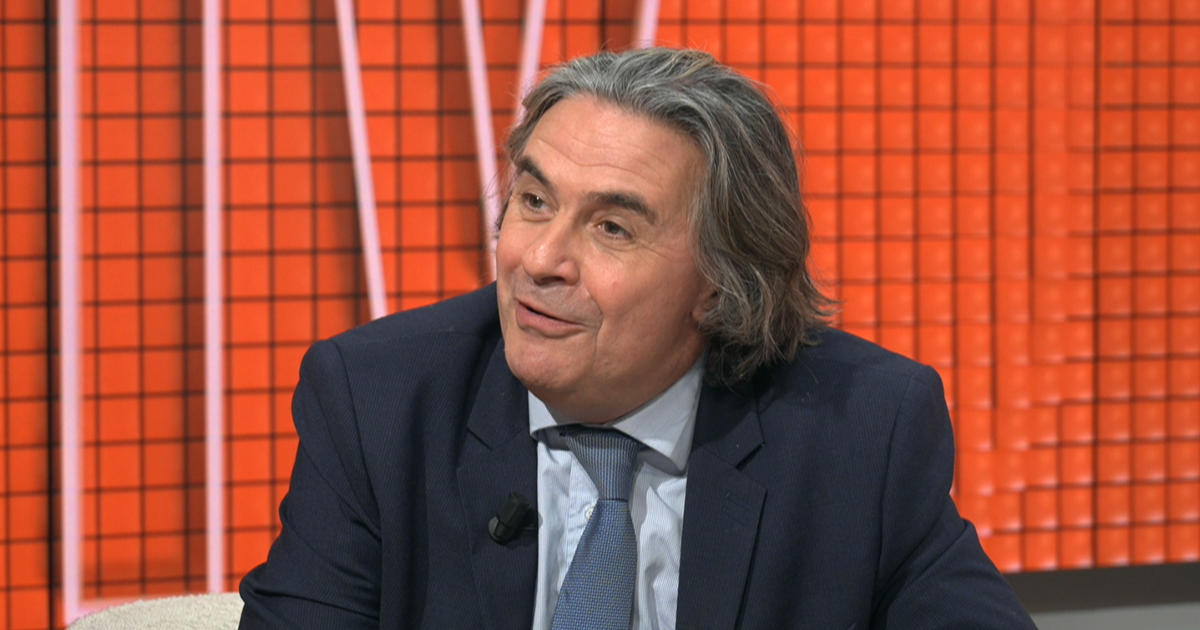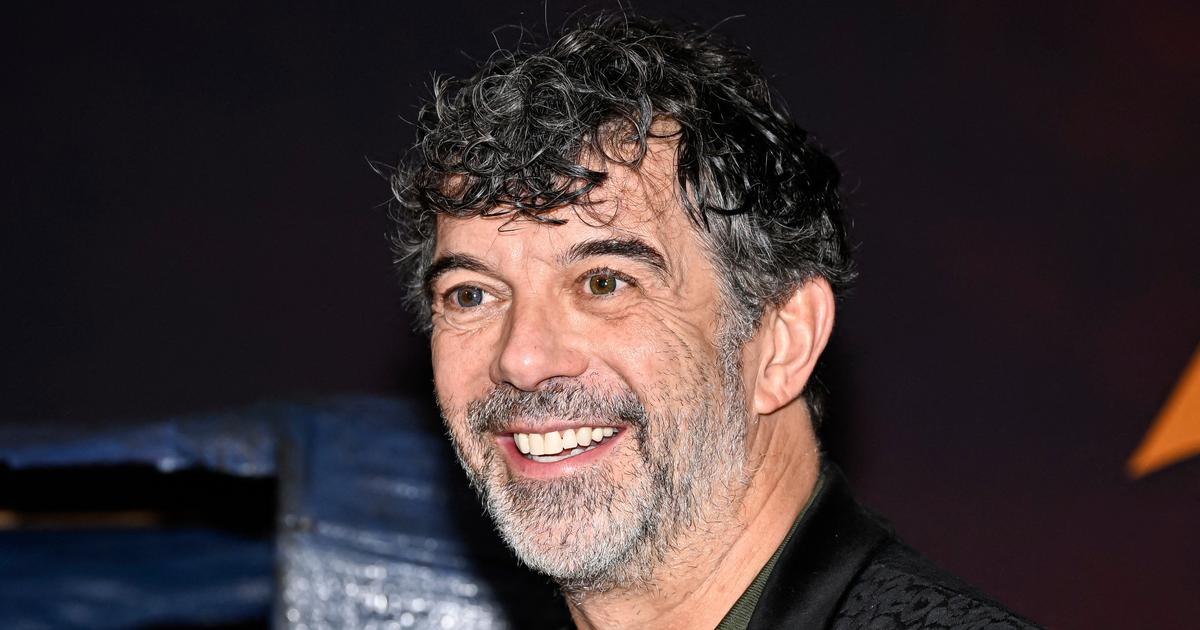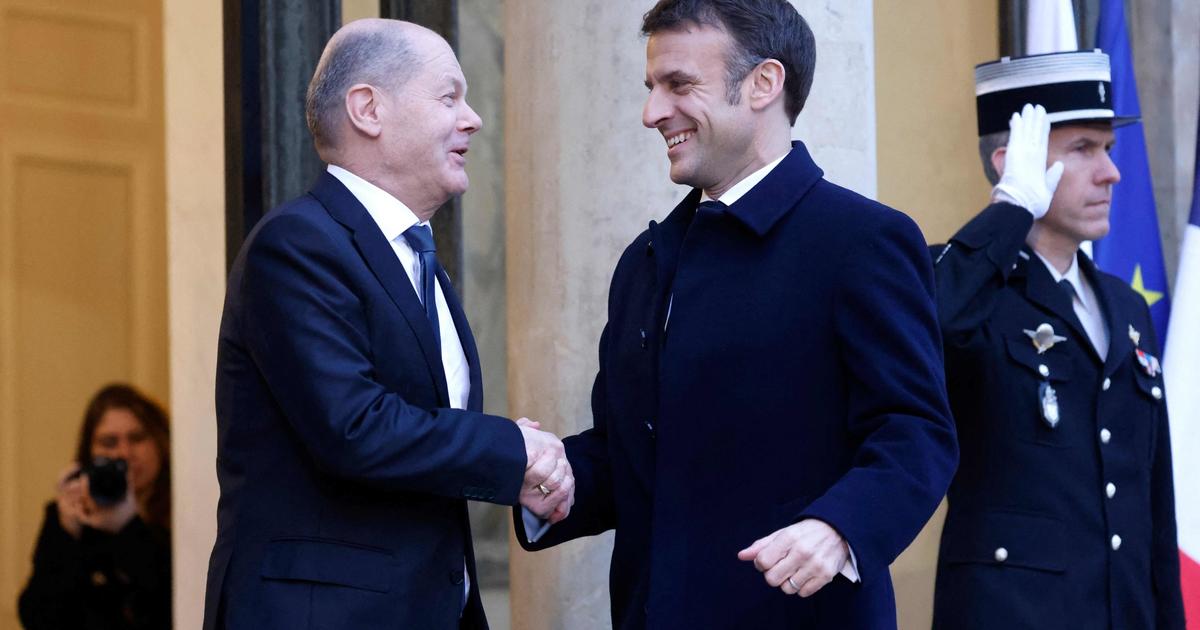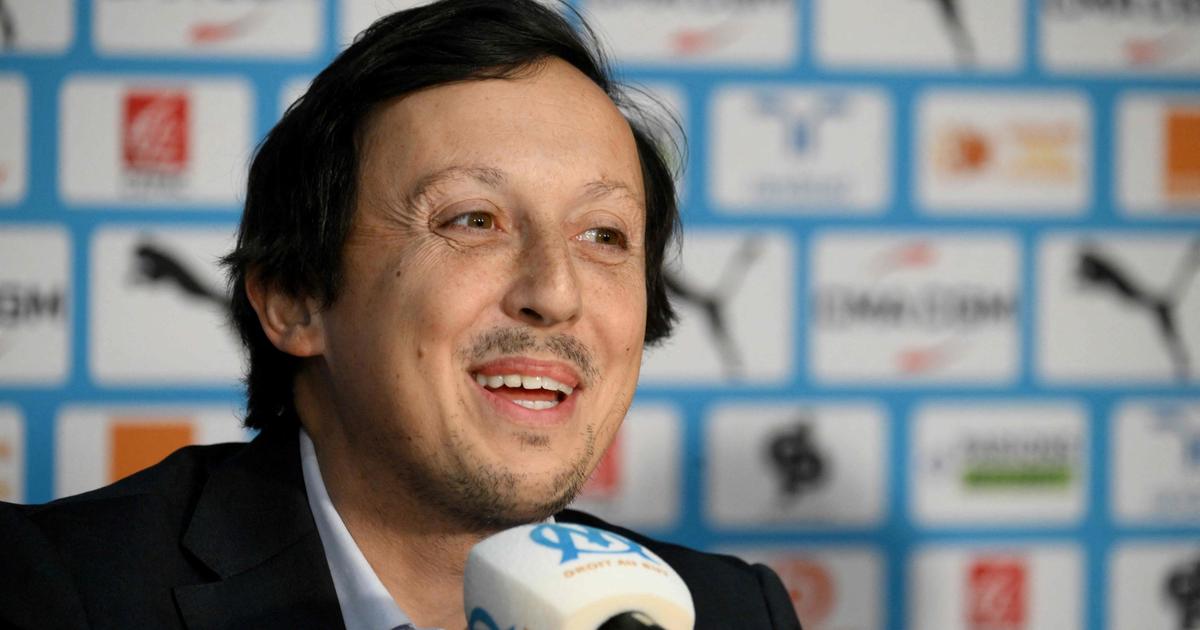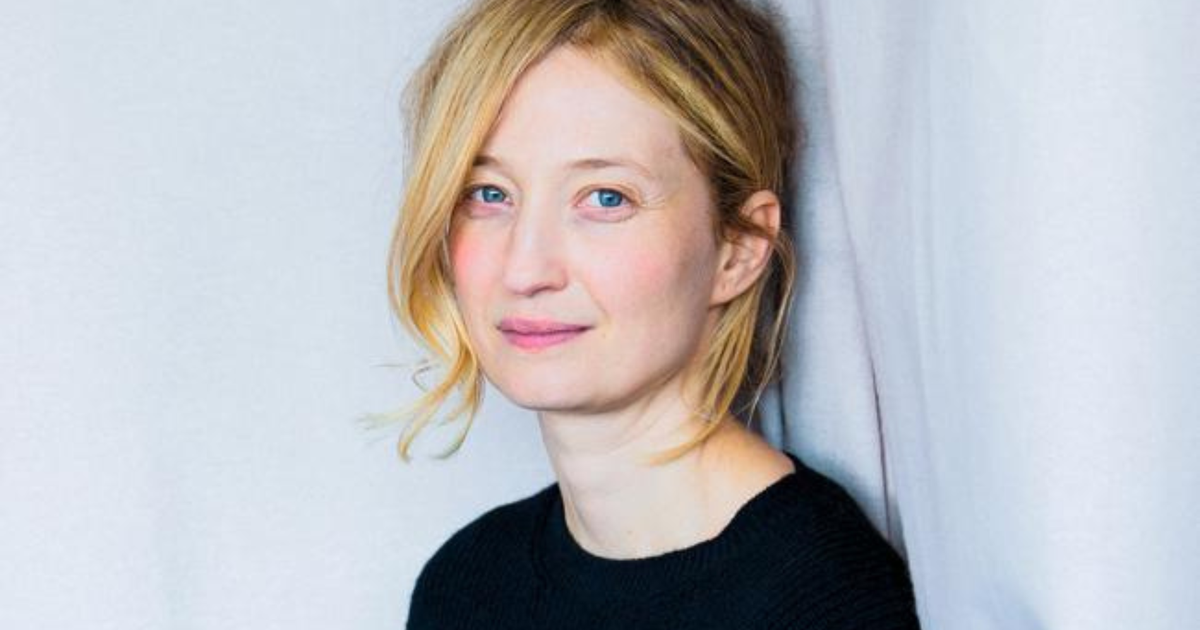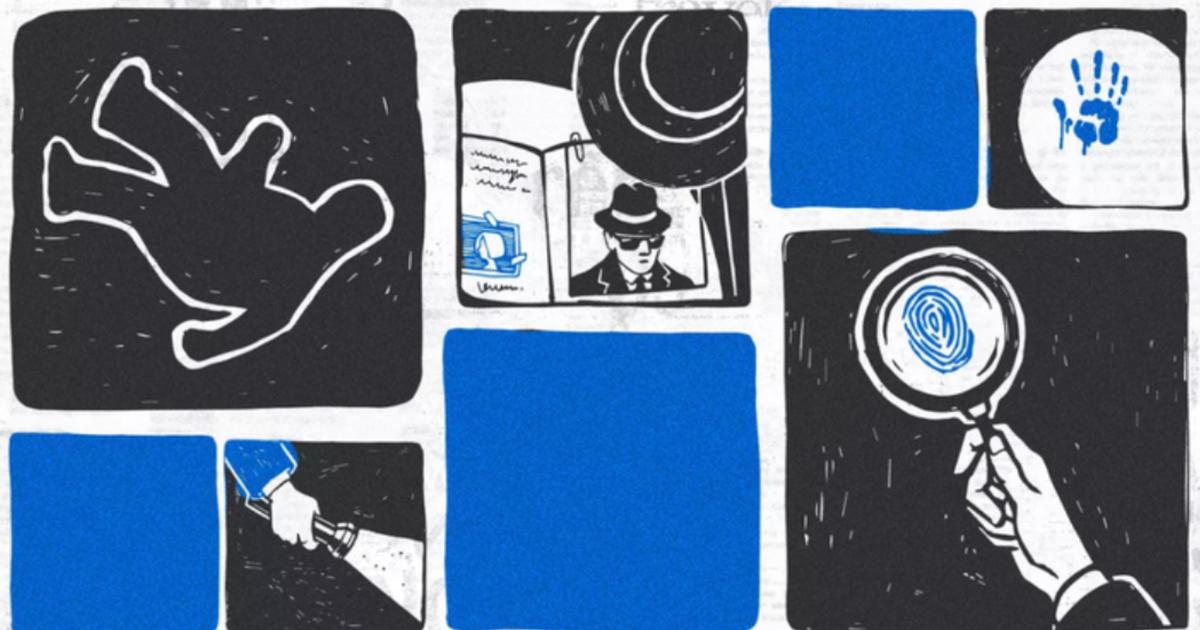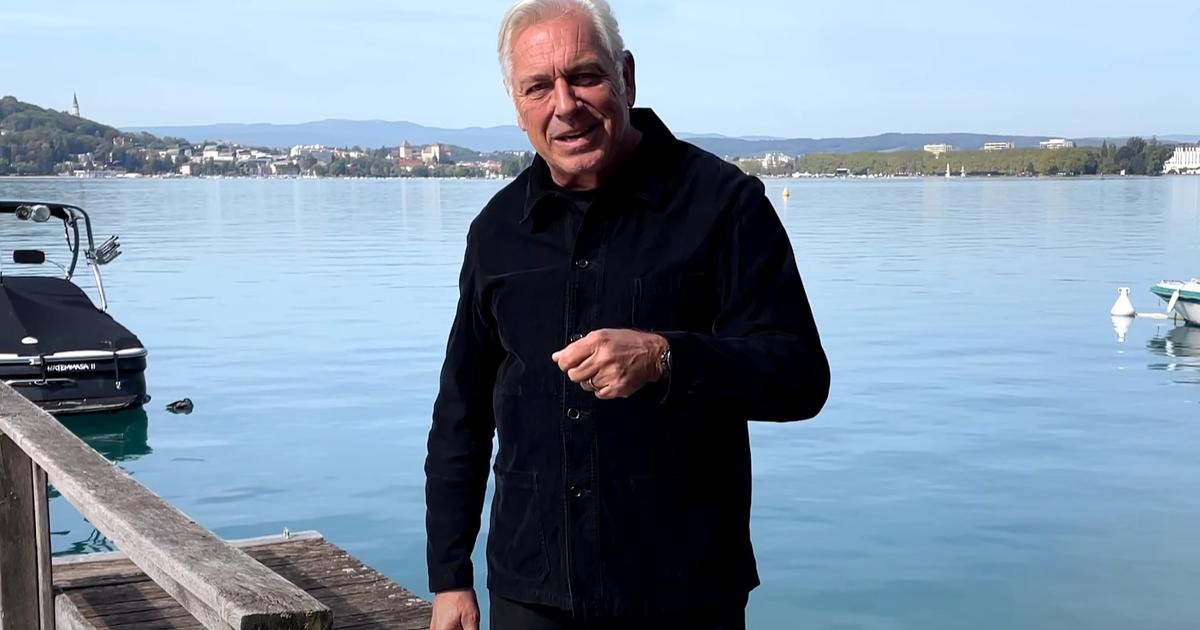Nothing can stop him.
5G will be deployed in the capital.
The Council of Paris validated, this Wednesday, the new charter which binds the mobile telephone operators to the City, born from the consultation of citizens in order to ease tensions and reassure on the possible harmful effects of this new technology.
All that remains is to activate the antennas already deployed.
By the end of March approximately, the time to validate some final administrative and technical formalities.
Stéphane Richard is obviously delighted.
During 1h30, this Monday morning, the CEO of Orange came to the premises of the Parisien to meet four of our readers.
Interested in the promises of 5G, sometimes also worried about its consequences and what this unstoppable march of progress says about our society, they did not fail to remind the boss of his responsibilities.
Stéphane Richard (right), CEO of Orange, this Monday in front of four Parisian readers: Edouard Level, Sylvie Roche, Guillaume Vignolle and Noémie Perrot (from left to right).
LP / Philippe Lavieille
Guillaume Vignolle.
How will 5G transform the daily lives of Parisians?
STÉPHANE RICHARD.
We must first understand the reason for this new technology.
In 18 months to 2 years, the current 4G network will reach saturation in the big cities, because the traffic increases by 50% every year.
What you do today with your smartphone, like watching a video on the street, will soon be much more difficult.
5G is the only solution available to continue to support the explosion in digital uses.
As for the changes it brings for the general public, it is more speed and throughput, lower latency, and therefore greater ease of use.
The satisfaction index of its users is twice as high as that for 4G.
But 5G will above all be mobility technology, connected objects ... Like glasses, almost as thin as everyday ones, which will allow you to walk in a museum and have elements of context on a work.
Edward Level.
Do you understand the fears of citizens?
In Paris, one thinks in particular of the health concerns vis-a-vis the multiplication of the antennas.
Newsletter Essentials of 75
A tour of the news in Paris and the IDF
Subscribe to the newsletterAll newsletters
I understand that there are questions, not controversy.
But why now and not for 4G or 3G?
I think there wouldn't have been so much tension if the deployment of 5G hadn't happened at the same time as the municipal elections.
All this reflects a fairly radical trend within French society, fortunately in the minority, opposed to progress and technology.
Each time by highlighting dangers that are not scientifically supported.
VIDEO. Macron defends 5G against "the Amish model"
The deployment of 5G will take place in two phases.
The first, in which we are, will be on sites already in use.
We will use the same antennas, with somewhat different frequency bands going from 1.8 gigahertz (Ghz) to 3.5 Ghz.
But the second phase, in fact, will require the installation of small antennas using frequencies between 24 and 28 Ghz, called millimeter waves, in order to bring spectacular performance gains.
However, they are more prone to questions because there has not yet been enough studies on them.
This deployment will only happen if everyone agrees.
Noémie Perrot.
But there is no review clause in the charter signed with the City of Paris.
Isn't that giving very strong power to operators at the expense of Parisians?
Discussions on this charter were very long.
It is not a legal instrument, rather a political framework and a commitment vis-à-vis the inhabitants.
Its purpose is not to impose additional constraints.
The operator's liability exists anyway by law.
And if a new element appears, that we discover that millimeter waves are bad for your health, can you imagine for a second that a company like Orange would say:
We are going to deploy these antennas anyway
?
Responsibility, it is not the charter that makes it, it is the world in which we live, all the more so for a company like ours which values its image and the link with its consumers.
Sylvie Roche.
What are your commitments to make 5G eco-responsible?
This technology was designed with specifications, more than ten years ago, in which energy performance was found.
Natively, it has therefore been endowed with features that go in this direction.
For example, its antennae, if they are not used, can go to sleep and no longer consume anything.
It is a revolution.
However, 60% of the telecoms sector's carbon footprint comes from terminals.
Recycling them is therefore a priority, especially with the arrival of 5G since new phones are needed to benefit from it.
We therefore launched a specific program.
Last year, 430,000 mobile phones were recycled in France.
It is very little whereas it is estimated that 100,000 million are in the drawers of the French.
Recycling must increase, in particular via our distribution network.
Noémie Perrot.
Doesn't Orange have a role to play in raising user awareness?
We must effectively make them responsible for the costs incurred and make them aware of good digital practices.
For example, you have to turn off your phone when you are not using it, use wi-fi when you are at home rather than the mobile network and not keep thousands of emails in your inbox.
This is why we carried out awareness campaigns last year on the theme of “living well with digital”.
Sylvie Roche.
Can you guarantee the security of Parisians' personal data despite the rise of connected objects linked to the arrival of 5G?
This question is essential in an increasingly connected world.
This is the reason why at Orange we have made cybersecurity a priority and invested in the creation of Orange Cyberdefense.
This fine company, today the European leader in its field, employs 2,300 engineers, which is far more than all our French competitors combined.
But the bulk of security breaches are not found in telecom networks.
5G therefore does not represent a threat as such, even if it is true that it will explode the data and therefore increase the temptation of malicious people to recover it for misuse.
Hence the need to continuously increase the level of protection of these systems and to invest in the prevention of cyber risk, which is essential.
READ ALSO>
We “visited” a 5G relay antenna
Edward Level.
Rather than investing in 5G in Paris, shouldn't it have been a priority to reduce the geographic digital divide?
To reduce the gap between the rural world and the big cities, the first answer consists in bringing the fiber as much as possible in all the territories, even the most rural ones.
This site is very important.
Today, 24 million households can be connected to fiber, or 60% of the total.
This project is therefore well advanced.
But it is still necessary to equip the less dense areas.
To do this, we have set up public-private partnerships.
Within three years, the French countryside will be connected to fiber.
Regarding mobile, we have improved the coverage of white areas.
100% of Orange branches in the region are 4G and 99% of the population is covered.
Orange and the three other operators have undertaken to build 5,000 additional antennas in order to improve the coverage of rural areas and, in return, the State has granted us an extension of the duration of use of frequencies by ten years.
Noémie Perrot.
But the antennas are not shared between the operators in areas with little coverage ...
The first programs for the absorption of white areas were carried out on the basis of pooling and this is the case for the additional 5,000 that we are building.
But there are still places that are only covered by one operator.
It's true, there is still work to be done.
Noémie Perrot.
Will these measures be enough?
No.
Coverage is essential, but there are other things to consider to reduce this divide.
Digital inclusion is the top priority at Orange.
Our foundation is very focused on this subject.
In our survey carried out in 2020, 13 million French people said they had difficulty writing, sending or opening an email.
Training the populations furthest from digital is essential.
Access to terminals is also a barrier and we are taking action to offer cheap or recycled material.
Guillaume Vignolle.
Students don't always have the budget to have a good connection.
How can you help them?
The situation of young people in the current period, especially students, is of great concern to us.
We have just led a solidarity action with Fage, the student union, which involved the donation of 10,000 Sim cards.
I think we will do other actions of this type.
Which ones?
I do not necessarily have the right answers, I am interested in proposals.
There is also everything we do in terms of recruitment.
We have not reduced our reception of work-study students and interns because of the epidemic.
I remind you that we have 5,000 work-study students, including 2,300 in Ile-de-France.
“Digital inclusion is the top priority at Orange,” recalls Stéphane Richard.
LP / Philippe Lavieille
Guillaume Vignolle.
What has your company put in place to allow its employees to go through this difficult period, linked to Covid-19?
First of all, partial unemployment was not used.
We ensured all the remuneration, even when it was necessary to close all the shops during the first confinement and now in the shopping centers.
Second, we have done a lot of work on maintaining the link between the company and its employees.
We still had 60,000 people working from home in France.
The first time, it was very well experienced;
the next shot much worse, especially since it drags on.
The suffering, the feeling of isolation are going back a lot nowadays.
However, we are very sensitive to psychosocial risks, undoubtedly because of our particular history
(Editor's note: ten years ago, a wave of suicides affected the operator which was still called France Telecom).
For several years, we have deployed a lot of means to be attentive to these subjects, with a very important occupational medicine, social workers, psychiatrists, preventionists ...
Sylvie Roche.
Why did you break your partnership with Huawei?
Because of political pressure?
We work with Huawei in many countries, but not in France.
So we haven't broken a partnership that doesn't exist.
It is true that with 5G, we had an opportunity to bring them onto the French network.
But we do not do it, as is the case in almost all European countries.
READ ALSO>
5G: five minutes to understand the sidelining of Huawei in France
It should be understood that there are technical and political issues.
Technically, we work very well with Huawei.
They are great professionals, reliable, undoubtedly the most advanced in our technologies.
I know that threats have been raised about spying on the Chinese via mobile networks.
But with all operators around the world, we have never highlighted the slightest security breach issue related to Chinese equipment.
Politically, Huawei is a company very close to the Chinese state, founded by a former soldier.
In fact, for a country, working with Huawei creates technological dependence on China.
Are we ready to accept this dependence on a subject as critical as telecommunications networks?
The response from most European countries is rather cautious.
Edward Level.
Are you going to sell Orange Bank, as has been mentioned in the press?
Did you achieve your goals?
We have over a million customers, which is by far the best performance for a new bank in France over three years.
We have built a very nice product, based on a mobile application popular with its users.
We have just acquired a platform for SMEs, we are expanding internationally… I am proud of what has been done, we were right to go into digital banking and we want to to continue.
Many major players in the sector have predicted failure, there is no leniency towards Orange.
Since the launch, and even before, they have repeatedly predicted disaster.
The general climate means that we are beaten up at the slightest opportunity.
I am not surprised coming from banks whose digital record is not good.
Not a single one has succeeded, except perhaps Société Générale with Boursorama.
Obviously, when you start a digital bank, you have to expect losses.
All the banks have lost money on their digital project, and continue to lose money.
But they do it anyway because they know it's the future.
Yes, our losses are a little more important than initially expected.
Yes, this investment, which was to be over ten years, will be a little longer.
Amazon waited, I believe, fifteen years before having a positive result ...
Edward Level.
Is the Orange Bank name correct?
Isn't the fact that it is backed by the name of an operator scary?
Your vision is diametrically opposed to ours, but it interests me.
We thought that customers would need to have confidence in the establishment where they deposit their money and invest their savings.
Between us, Orange has a much stronger balance sheet than most French banks… To attract young people, perhaps we should bring out a Sosh Bank range?
It is to think about.
This kind of question fascinates me and reinforces me in the idea that we were right to launch ourselves.


